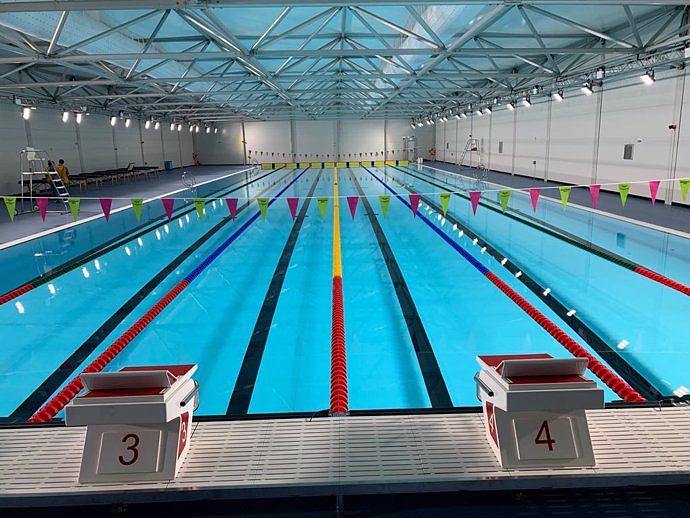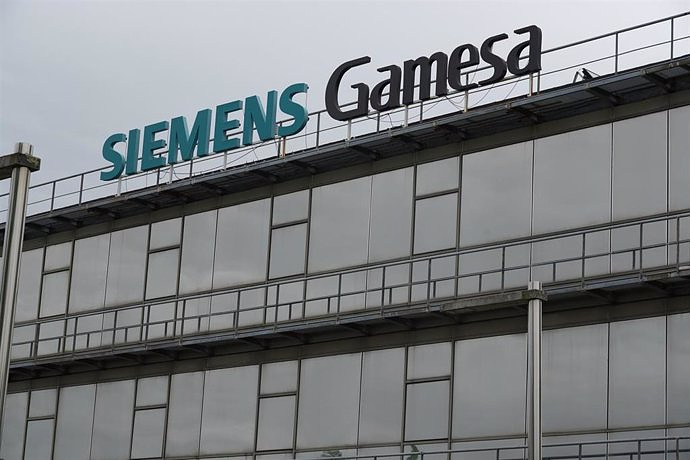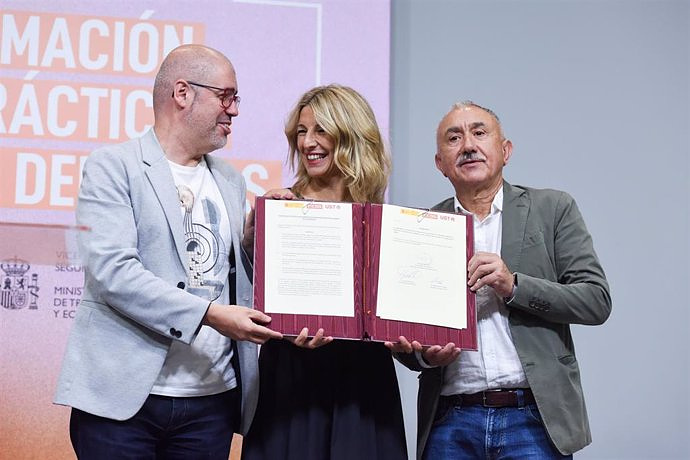VALENCIA, Oct. 17 (EUROPA PRESS) -
Researchers from the CEU Cardenal Herrera University (CEU UCH) and Ford Valencia have obtained the Global Manufacturing Technical Excellence Award (GMTEA) 2023, which the American multinational Ford Motor Company awards each year to the best research and innovation project of all its factories, from its headquarters in Dearborn (Michigan).
The award-winning work consists of the design of an IIoT (Industrial Internet of Things) tool to monitor in real time the balance of the presses during the stamping process, detect anomalies due to imbalance or discontinuity and predict possible breakdowns, explains the academic institution in a release.
This technology, awarded with the GMTEA 2023 from Ford, is part of the doctoral thesis that the doctoral student Iván Peinado is carrying out at the CEU UCH, with funding from the Foundation for Development and Innovation (FDI), and under the direction of professor Ph.D. Nicolás Montes Sánchez, principal researcher of the Industrial Automation and Robotics Group (AIR) of the CEU UCH, and the doctor from this University Eduardo García Magraner, manager of the Body and Press Engineering area of Ford Valencia.
The three researchers have published the results of this new technological development awarded by Ford in the scientific journal Sensors, in the article titled "Virtual Sensor of Gravity Centers for Real-Time Condition Monitoring of an Industrial Stamping Press in the Automotive Industry."
Already in 2019, its mathematical model for predicting breakdowns in the production lines of bodies and presses "Miniterms 4.0", designed by the CEU UCH and Ford team in Valencia, was the best innovation of the year in the American multinational, achieving the 2019 Henry Ford Technology Award, which Ford awards annually to the best proposal submitted by its 80 plants and 3 research centers around the world.
The evolution of their methodology, now to detect anomalies due to imbalance or discontinuity in the stamping process, has earned them this new award from Ford, the Global Manufacturing Technical Excellence Award (GMTEA), just four years later.
According to the author of the doctoral thesis, Iván Peinado, "the award-winning system is based on the same philosophy as the "Miniterms 4.0" project, that is, it uses the data already available on the machines in the production plants to generate IIoT tools. .
In this case, the so-called "360 Criterion" has been defined to store data from the press sensors every time the position of its main axis has rotated one degree. Since the main shaft rotates in one complete cycle of the press, this criterion allows us to obtain information from the phases of the process and easily shows where in the cycle the measured data is.
CEU UCH doctor Eduardo García Magraner, from Ford Valencia, highlights that the new system "detects anomalies due to imbalance or discontinuity in the stamping process using the DBSCAN algorithm, which makes it possible to avoid unexpected stops and serious breakdowns. In addition to carrying out the previous tests to verify that minimal imbalances are actually detected in the stamping process, the system has been connected to normal production at the Almussafes plant for a whole year, showing its full effectiveness."
According to CEU UCH professor Nicolás Montés, "the work carried out in Iván Peinado's thesis, as well as in the previous thesis of Dr. Eduardo García Magraner on "Miniterms", demonstrates that the key to success in these predictive systems is use the sensors that are already installed in the industry to develop tools for the Industrial Internet of Things (IIoT)."
"Currently," he continues, "research centers, universities and companies propose IIoT tools for which it is necessary to install their own sensors and use their own network to extract the data to a database located in their facilities. These solutions do not "They are viable in the industry, because thousands and thousands of sensors would need to be installed and maintained to cover all the existing machines in a factory like Ford's. For this reason, their use is not widespread and they are only used in critical machines."
In this sense, Montes highlights the importance of University-Business collaboration for the development of tools that can be effectively implemented in the industry.
"Our 'I3oT' concept proposes to develop IIoT tools through the use of already installed sensors, which make the line operate automatically. This allows data to be obtained without installing new sensors and from all the machines and factories already monitored. For example, there are currently about 40,000 miniterms installed in the factories of Almussafes, Craiova and Sarlouis, with minimal cost. This is I3oT: an industrial and industrializable Internet of Things."
And adds. "Our I3oT concept should make research centers and universities think that it is not possible to work alone in the laboratory, because then, when you want to transfer to the industry, this is not possible. Working side by side with the industry, "Understanding its problems and limitations, is the way forward to achieve the long-awaited Industry 5.0."
Along with the researchers Iván Peinado Asensi, Nicolás Montes Sánchez and Eduardo García Magraner, Hilario Teruel Sempere, from Ford, is part of the Ford and CEU UCH research team awarded with the GMTEA 2023; CEU UCH doctoral students Javier Llopis Ballester and Antonio Lacasa Corral, also Ford staff; and Juan Carlos Latorre Iranzo, CEU UCH research support staff assigned to Ford.

 Exploring Cardano: Inner Workings and Advantages of this Cryptocurrency
Exploring Cardano: Inner Workings and Advantages of this Cryptocurrency Seville.- Economy.- Innova.- STSA inaugurates its new painting and sealing hangar in San Pablo, for 18 million
Seville.- Economy.- Innova.- STSA inaugurates its new painting and sealing hangar in San Pablo, for 18 million Innova.- More than 300 volunteers join the Andalucía Compromiso Digital network in one month to facilitate access to ICT
Innova.- More than 300 volunteers join the Andalucía Compromiso Digital network in one month to facilitate access to ICT Innova.-AMP.- Ayesa acquires 51% of Sadiel, which will create new technological engineering products and expand markets
Innova.-AMP.- Ayesa acquires 51% of Sadiel, which will create new technological engineering products and expand markets April 2024 was the hottest on global records
April 2024 was the hottest on global records Tezanos charges against the PP for its "dirty war" against the CIS and says that the JEC does not adhere to the principle of legality
Tezanos charges against the PP for its "dirty war" against the CIS and says that the JEC does not adhere to the principle of legality Illa promises to appoint Parlon Minister of the Interior and Trapero Director General of Mossos
Illa promises to appoint Parlon Minister of the Interior and Trapero Director General of Mossos Unions are mobilizing today to achieve labor and salary improvements in the Tax Agency
Unions are mobilizing today to achieve labor and salary improvements in the Tax Agency How Blockchain in being used to shape the future
How Blockchain in being used to shape the future Not just BTC and ETH: Here Are Some More Interesting Coins Worth Focusing on
Not just BTC and ETH: Here Are Some More Interesting Coins Worth Focusing on They develop devices for the precise diagnosis of cancer patients
They develop devices for the precise diagnosis of cancer patients UMH researchers are working on a high-quality apricot crop that requires less irrigation water
UMH researchers are working on a high-quality apricot crop that requires less irrigation water The UPV develops an application to improve the quality of life of patients with glioblastoma
The UPV develops an application to improve the quality of life of patients with glioblastoma A sensor system obtains the fingerprint of essential oils and detects if they have been adulterated
A sensor system obtains the fingerprint of essential oils and detects if they have been adulterated A million people demonstrate in France against Macron's pension reform
A million people demonstrate in France against Macron's pension reform Russia launches several missiles against "critical infrastructure" in the city of Zaporizhia
Russia launches several missiles against "critical infrastructure" in the city of Zaporizhia A "procession" remembers the dead of the Calabria shipwreck as bodies continue to wash up on the shore
A "procession" remembers the dead of the Calabria shipwreck as bodies continue to wash up on the shore Prison sentences handed down for three prominent Hong Kong pro-democracy activists
Prison sentences handed down for three prominent Hong Kong pro-democracy activists ETH continues to leave trading platforms, Ethereum balance on exchanges lowest in 3 years
ETH continues to leave trading platforms, Ethereum balance on exchanges lowest in 3 years Investors invest $450 million in Consensys, Ethereum incubator now valued at $7 billion
Investors invest $450 million in Consensys, Ethereum incubator now valued at $7 billion Alchemy Integrates Ethereum L2 Product Starknet to Enhance Web3 Scalability at a Price 100x Lower Than L1 Fees
Alchemy Integrates Ethereum L2 Product Starknet to Enhance Web3 Scalability at a Price 100x Lower Than L1 Fees Mining Report: Bitcoin's Electricity Consumption Declines by 25% in Q1 2022
Mining Report: Bitcoin's Electricity Consumption Declines by 25% in Q1 2022 Oil-to-Bitcoin Mining Firm Crusoe Energy Systems Raised $505 Million
Oil-to-Bitcoin Mining Firm Crusoe Energy Systems Raised $505 Million Microbt reveals the latest Bitcoin mining rigs -- Machines produce up to 126 TH/s with custom 5nm chip design
Microbt reveals the latest Bitcoin mining rigs -- Machines produce up to 126 TH/s with custom 5nm chip design Bitcoin's Mining Difficulty Hits a Lifetime High, With More Than 90% of BTC Supply Issued
Bitcoin's Mining Difficulty Hits a Lifetime High, With More Than 90% of BTC Supply Issued The Biggest Movers are Near, EOS, and RUNE during Friday's Selloff
The Biggest Movers are Near, EOS, and RUNE during Friday's Selloff Global Markets Spooked by a Hawkish Fed and Covid, Stocks and Crypto Gain After Musk Buys Twitter
Global Markets Spooked by a Hawkish Fed and Covid, Stocks and Crypto Gain After Musk Buys Twitter Bitso to offset carbon emissions from the Trading Platform's ERC20, ETH, and BTC Transactions
Bitso to offset carbon emissions from the Trading Platform's ERC20, ETH, and BTC Transactions Draftkings Announces 2022 College Hoops NFT Selection for March Madness
Draftkings Announces 2022 College Hoops NFT Selection for March Madness
























